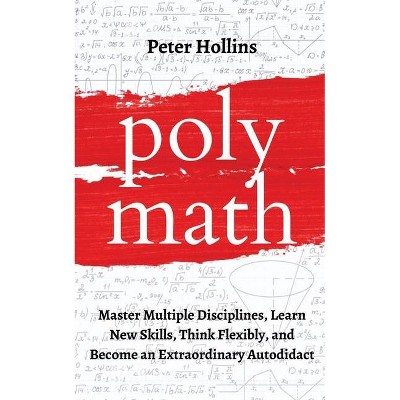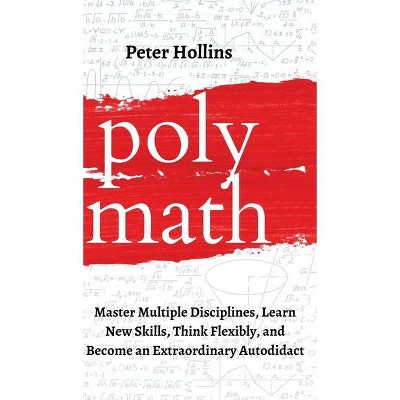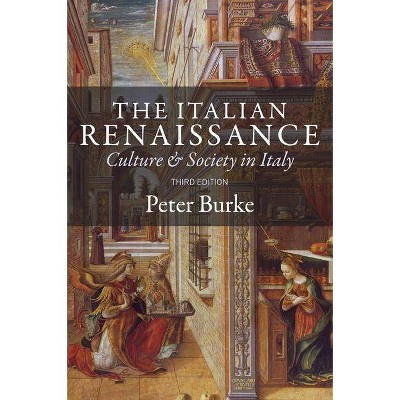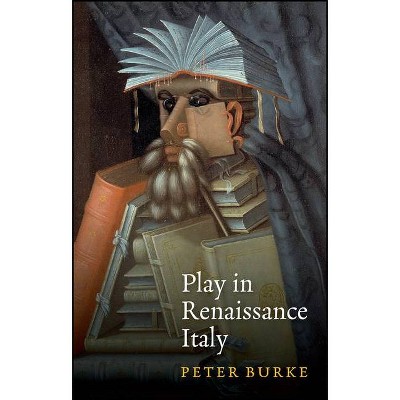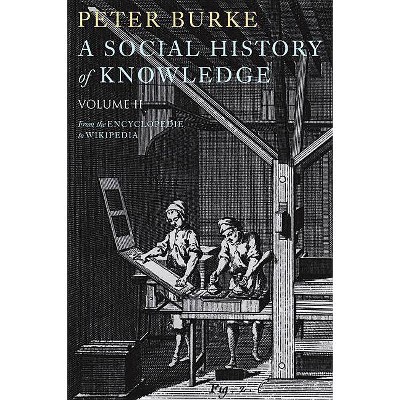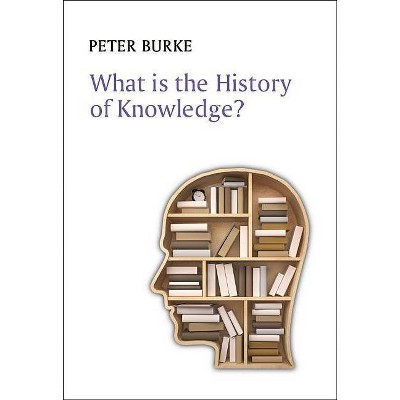The Polymath - by Peter Burke (Paperback)
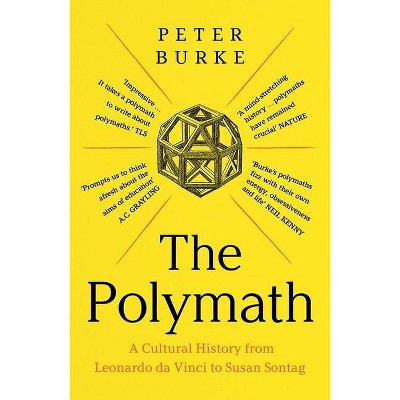
Similar Products
Products of same category from the store
AllProduct info
<p/><br></br><p><b> About the Book </b></p></br></br>The remarkable story of Western polymaths from the fifteenth century to the present day<p/><br></br><p><b> Book Synopsis </b></p></br></br><p><b>From Leonardo Da Vinci to Oliver Sacks: the first history of the western polymath, from the Renaissance to the present </b> <p/><b>"An absorbing group portrait and intellectual history."--</b><i><b>Kirkus Reviews</b></i> <p/><b>"An admirable mixture of industry and erudition."--Robert Wilson, <i>Wall Street Journal</i></b> <p/> From Leonardo Da Vinci to John Dee and Comenius, from George Eliot to Oliver Sacks and Susan Sontag, polymaths have moved the frontiers of knowledge in countless ways. But history can be unkind to scholars with such encyclopedic interests. All too often these individuals are remembered for just one part of their valuable achievements. <p/> In this engaging, erudite account, renowned cultural historian Peter Burke argues for a more rounded view. Identifying 500 western polymaths, Burke explores their wide-ranging successes and shows how their rise matched a rapid growth of knowledge in the age of the invention of printing, the discovery of the New World and the Scientific Revolution. It is only more recently that the further acceleration of knowledge has led to increased specialization and to an environment that is less supportive of wide-ranging scholars and scientists. <p/> Spanning the Renaissance to the present day, Burke changes our understanding of this remarkable intellectual species.</p><p/><br></br><p><b> Review Quotes </b></p></br></br><br>"An admirable mixture of industry and erudition."--Robert Wilson, <i>Wall Street Journal </i> <p/>"A few pages at a time about interdisciplinary giants such as Leibniz, Diderot and Germaine de Stael can be energizing."--Michael Dirda, <i>Washington Post</i> <p/>"In a mind-stretching history, Peter Burke describes '500 western polymaths' from the half-millennium since Leonardo da Vinci."--Andrew Robinson, <i>Nature.com</i> <p/>"An absorbing group portrait and intellectual history."--<i>Kirkus Reviews</i> <p/>"[A] mind-stretching and thought-provoking history, which spans the half-millennium that followed the life of the most wide-ranging polymath of all, Leonardo da Vinci."--Andrew Robinson, <i>Science</i> <p/>"An absorbing and polymathic account of an important intellectual species. This is a significant and timely book, because in illustrating why our culture needs polymaths as well as specialists it prompts us to think afresh about the aims of education and what we need to better inform our public conversation."--A. C. Grayling <p/>"As well as illuminating general patterns, Burke's polymaths fizz with their own energy, obsessiveness, and life."--Neil Kenny, <i></i>author of <i>The Uses of Curiosity in Early Modern France and Germany</i> <p/>"The author and his subjects undoubtedly inhabit a shared world, which Burke explains to the rest of us with remarkable insight and understanding, providing both historical depth and remarkable cross-disciplinary breadth."-- Paul Duguid, co-author of <i>The Social Life of Information </i> <p/>"In this kaleidoscopic account, Peter Burke unfolds the amazing stories of "monsters of erudition," tracing the fate of the universal thinker in a world flooding with information."-- Daniel Rosenberg, co-author of <i>Cartographies of Time</i> <p/><br><p/><br></br><p><b> About the Author </b></p></br></br><b>Peter Burke</b> is emeritus professor of cultural history at Cambridge University. He is the author of many distinguished books that have been translated into more than thirty languages.
Price History
Cheapest price in the interval: 17.59 on October 27, 2021
Most expensive price in the interval: 17.59 on November 8, 2021
Price Archive shows prices from various stores, lets you see history and find the cheapest. There is no actual sale on the website. For all support, inquiry and suggestion messages communication@pricearchive.us
